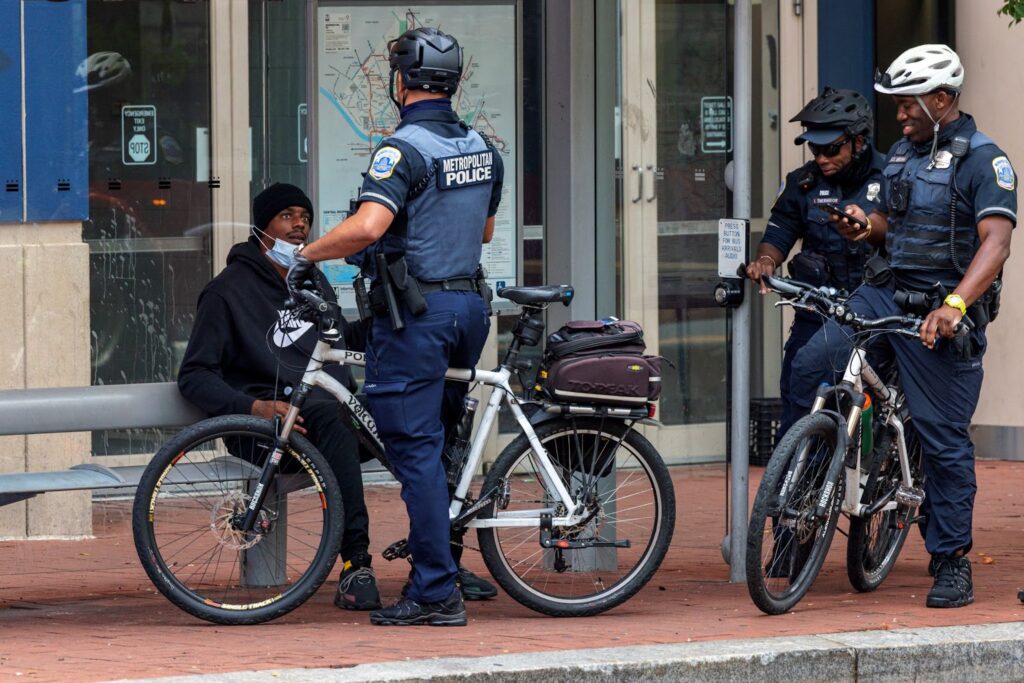
The D.C. Police Department has introduced a new program where police officers learn when to intervene if fellow officers react adversely to a given situation and overstep boundaries and protocols.
The program, called Active Bystandership for Law Enforcement (ABLE), is a national training initiative that has been adopted this year by the D.C. Police Department.
The ABLE training program is spearheaded by project director Lisa Kurtz of Georgetown Law and developed by Dr. Ervin Staub, the president of the Society for the Study of Peace, Conflict, and Violence. The program includes about 179 ABLE-certified agencies with 1,040 trained instructors in over 38 U.S. states.
ABLE representatives did not respond to Hilltop interview requests in time for publication. However, according to an article by WUSA9, during the training, “officers learn techniques to intervene with fellow officers, subordinates, or superior officer.”
ABLE training aims to educate police officers to intercede and mediate to prevent any injury and misconduct from taking place during any situations where protocols are not followed and personal boundaries are overreached.
According to an article by WTOP news, ABLE was created to encourage a “law enforcement culture that supports peer intervention.”
As stated on the ABLE website, the program “is evidence-based and founded upon decades of research, field and lab experiments, and on-the-ground experience.”
In terms of the actual technique, ABLE details that “officers are trained in how to give an intervention, how to receive an intervention, and how to follow up on the intervention to prevent future harm.”
ABLE also ensures that law enforcement officers learn strategies that are effective to avoid any biases in policing towards communities that are affected by prejudice and ineffective policing.
ABLE lists a number of benefits of the program on their website, some of which include, “reduced unnecessary harm to civilians, improved police/community relations, improved citizen satisfaction with law enforcement agency and improved officer health and wellness.”
In a statement to WTOP news, D.C. Police Chief Robert Contee said that “intervening is often harder than not. It is a skill that can be trained.”
He also mentioned in the statement, that the case of George Floyd and the misconduct observed in the Minneapolis Police Department both initiated calls for significant police reform across the nation, and that they are considered some of the most obvious examples of much-needed officer intervention.
Subsequently, the D.C. Police Department mandated annual ABLE training for all officers.
The ABLE training program is modeled after New Orleans Police Department’s own intervention program known as Ethical Policing is Courageous (EPIC).
As stated by ABLE, “the ABLE project builds upon EPIC and Dr. Staub’s prior work to develop and deliver practical, scenario-based training for police agencies in the strategies and tactics of police peer intervention.”
In an officer testimonial on the ABLE website, Lieutenant William D.Walsh from the New Jersey Police Department stated that, “officers are well-trained and very comfortable in taking control of stressful scenes during their shifts, however, we have traditionally failed our cops by not teaching them how to help one another when they are in their own stressful situations.”
Another officer, Captain Lafate Elliott Day Jr., from the Lafourche Parish Sheriff’s Office, stated in his testimonial that, “ABLE addresses the concerns of both the public and law enforcement. While being sensitive to public perception, this is a course that emphasizes officer safety and prevention.”
The ABLE program includes a research advisory board that conducts surveys and other research methods to analyze how ABLE can be most helpful.
The statistical success rate of the program is currently unknown, as stated on the program website, “it is difficult to quantify the success of active bystandership because, in most cases, when it works, nothing newsworthy happens.”
Copy edited by Jasper Smith









